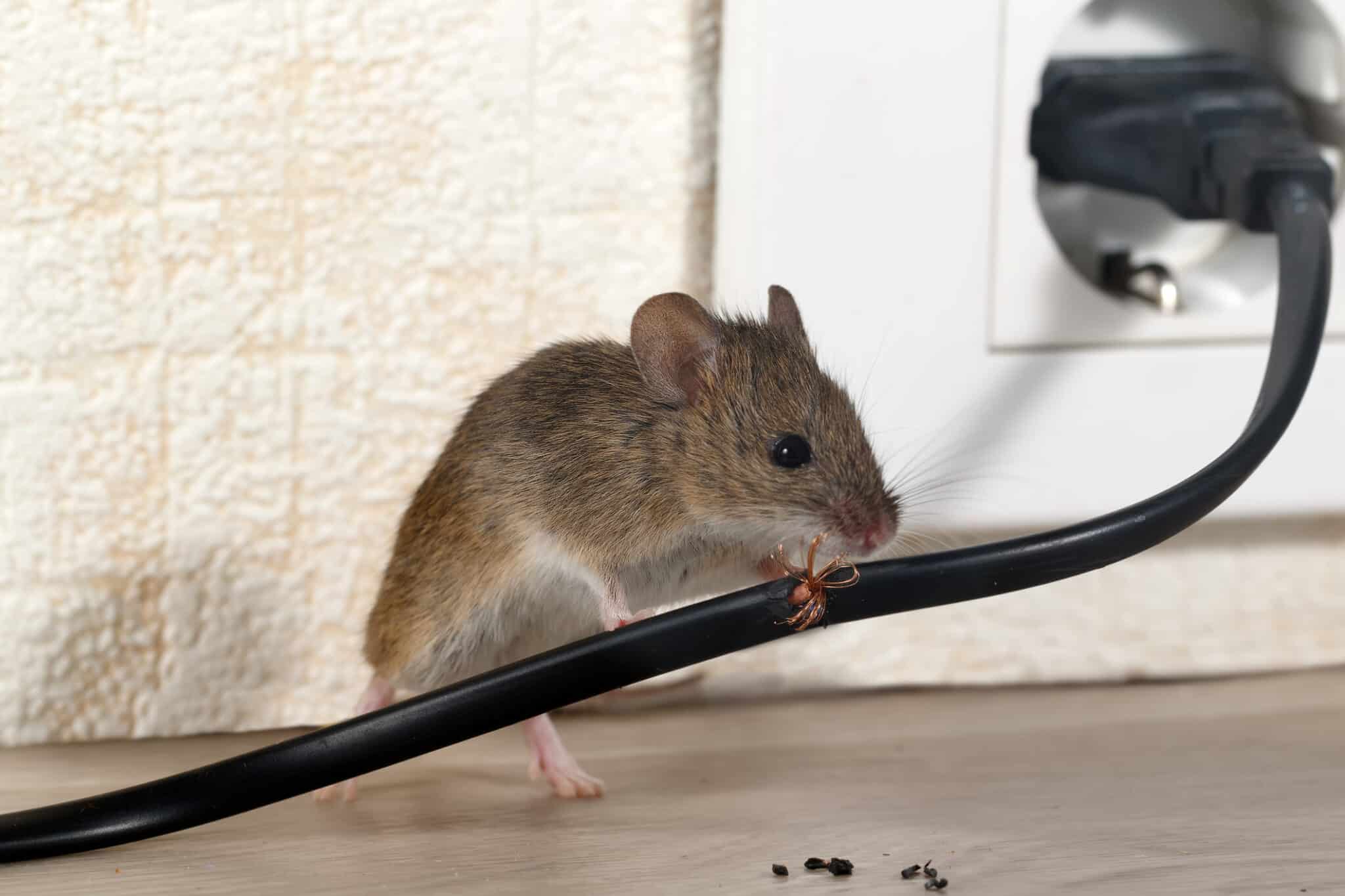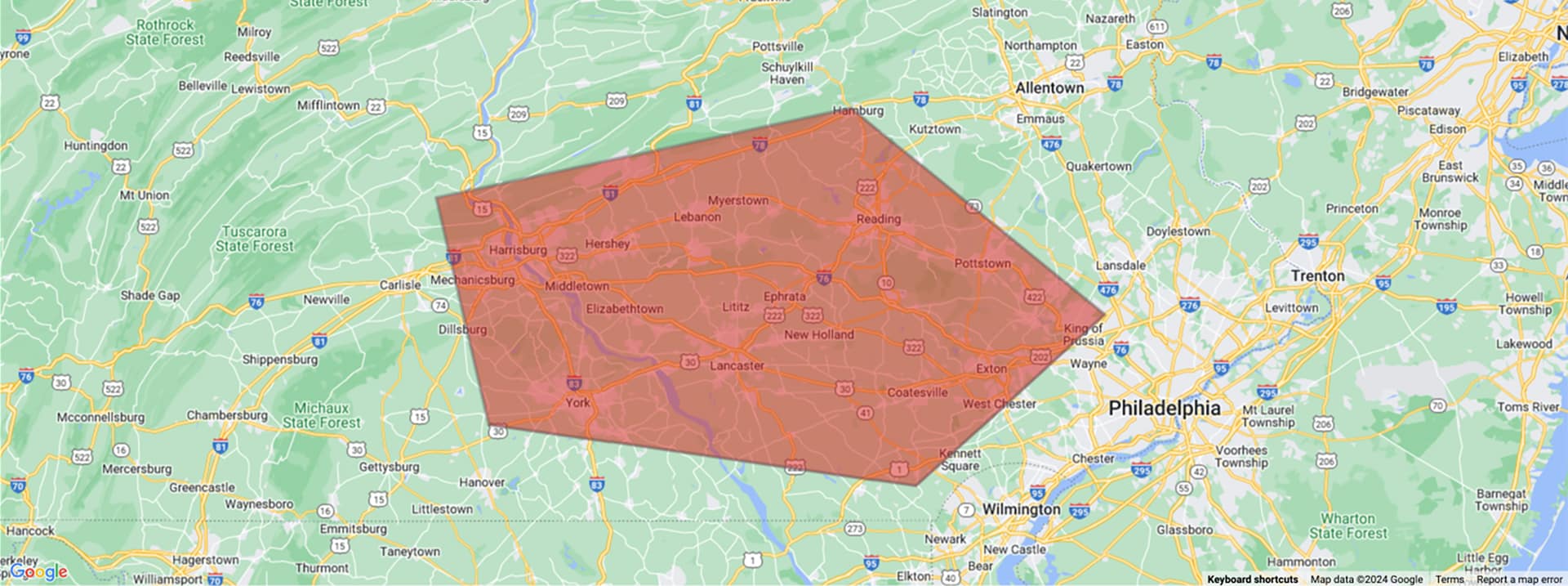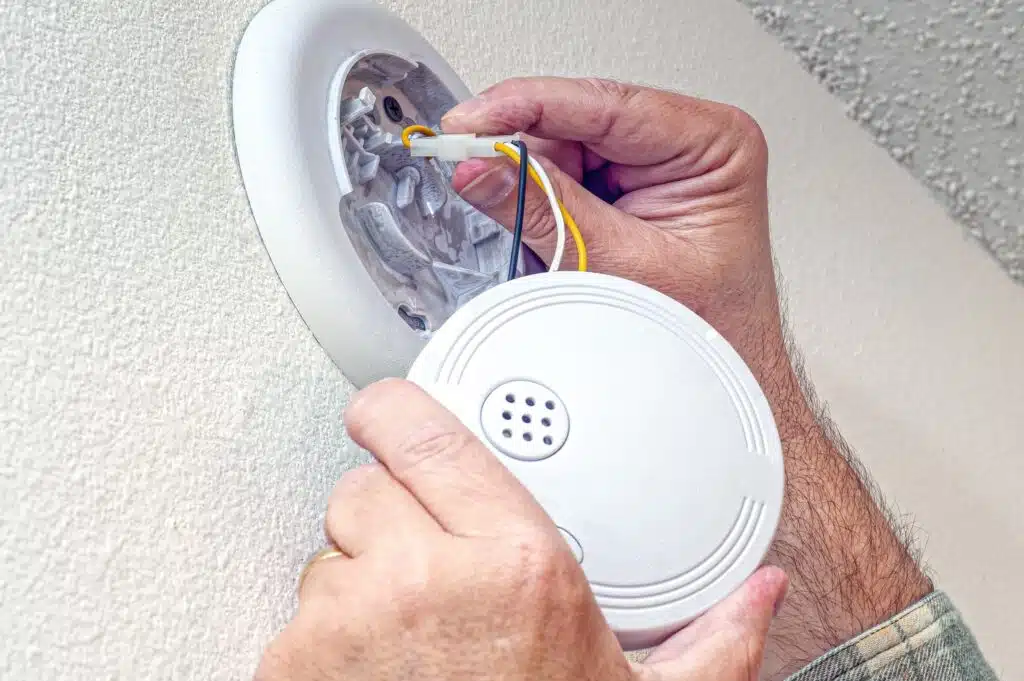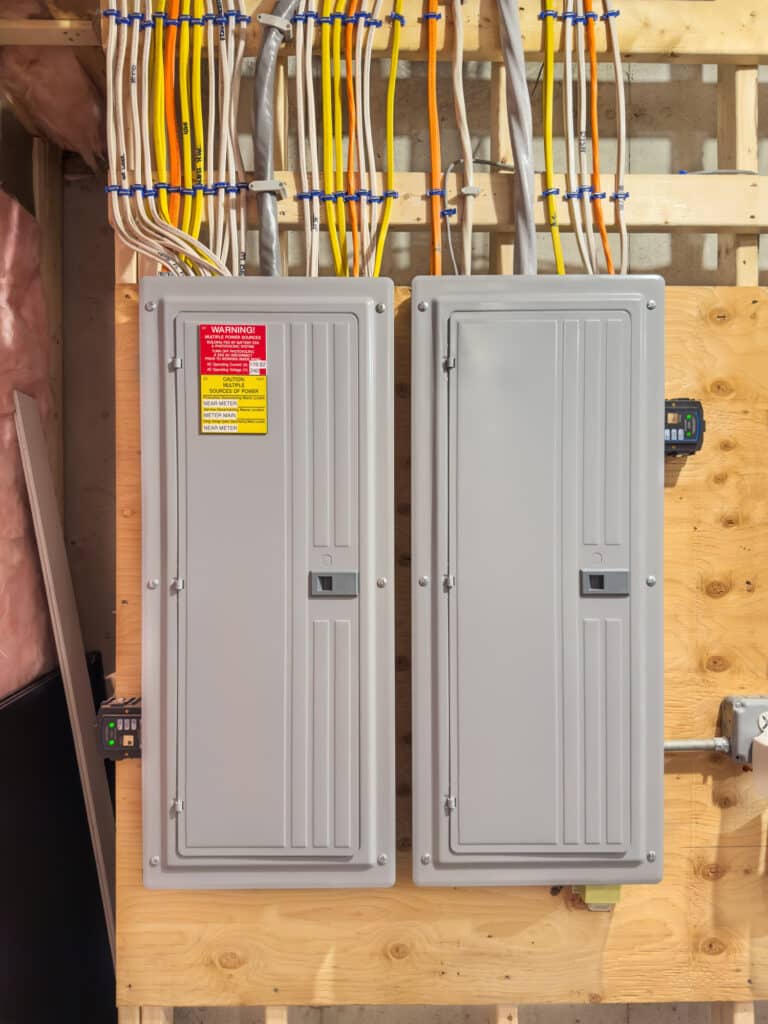Protecting your home’s wiring from pests is crucial for safety. In Lancaster, York, and Harrisburg, rodents and insects are known to chew through electrical wires, leading to shorts and potential fire hazards. Regular inspections, sealing entry points, and using protective materials like metal conduits can deter pests. Signs of damage include frayed wires, bite marks, and strange odors. If you suspect damage, turn off the power and call a professional electrician. Keeping your home pest-free and maintaining your electrical system can prevent costly and dangerous problems.

Have you ever had a light flicker unexpectedly or found a chewed-up wire? It might be more than just an old bulb or faulty wiring—it could be pests! In Lancaster, York, and Harrisburg, PA, pests like mice, rats, and even termites are known for turning household wiring into their personal chew toys.
This doesn’t just cause annoying electrical issues; it’s a serious fire hazard. So, how can you protect your home’s wiring and keep these critters away? Let’s dive into why this matters and what you can do!
Importance of Protecting Wiring
Ever wonder why protecting the wiring in your home from pests is so important? If you’ve ever dealt with chewed-up wires or sudden electrical issues, you know exactly what I mean. In places like Lancaster, PA, and surrounding areas like York and Harrisburg, homeowners often face problems caused by sneaky pests making themselves too comfortable in homes.
From rodents like mice and rats to pesky insects like termites, these critters can cause major headaches—and the damage to your home’s electrical wiring is just one of them.
When pests chew through your home’s wiring, it doesn’t just lead to the inconvenience of flickering lights or malfunctioning outlets. It can cause dangerous electrical shorts, power outages, or even start a fire!
This kind of damage is not just a minor fix; it often requires professional help and, in some cases, a complete rewiring of sections in your home. That’s why it’s critical to take steps to protect your wiring before you end up with a costly problem on your hands.
Common Types of Pests That Affect Wiring
When it comes to protecting your home’s electrical setup, knowing which pests are likely to cause damage is key. Some of these critters are small but mighty, and their impact on your system can be serious.
They are known to chew, nest, and cause significant harm to wires and other electrical components in homes across Lancaster, York, and Harrisburg.
Understanding the behaviors and risks of these pests can help you take steps to prevent potential problems. Let’s look at some of the most common culprits that homeowners should watch out for:
Rodents: Mice and Rats
Rodents are probably the number one enemy of electrical systems in homes. Their strong teeth never stop growing, so they constantly chew on things to keep them in check—including your electrical wiring!
Whether it’s in your basement, attic, or within the walls, mice and rats can squeeze into tight spaces, gnaw through insulation, and expose live wires.
This damage not only disrupts your home’s power flow but also poses a major safety risk. It can lead to dangerous sparks, short circuits, or even start a fire, putting your home and family in serious danger.
Insects: Termites and Ants
Termites and certain types of ants, such as carpenter ants, are more than just a threat to wooden structures—they can also damage your home’s electrical system. Carpenter ants are notorious for creating tunnels and nests in areas where electrical wiring is present, and they often chew through the protective coating on wires.
This leaves exposed connections that increase the risk of electrical shorts or malfunctions. Termites, while typically targeting wood, have been known to chew through wires that are in their path.
If you notice frayed connections or see insect droppings near outlets, it’s a strong indicator of an insect infestation impacting your home’s wiring.
Other Potential Threats
Other animals, such as raccoons, squirrels, and even birds, can also cause significant harm to your home’s wiring. Squirrels, in particular, are known for their habit of chewing through power lines and wiring within the home, which can lead to unexpected power outages and serious safety concerns.
Raccoons, being larger and more powerful, can tear apart insulation and knock wiring loose when making nests in attics or crawl spaces.
Birds, especially during warmer months when they’re building nests, may peck and tear at exterior wiring, creating exposed areas that are vulnerable to weather damage and short circuits. Keeping an eye on these potential threats is essential to maintaining a safe home and protecting your wiring.
Understanding the Risks Pests Pose to Electrical Systems
Pests can cause serious damage to a home’s electrical system, leading to costly repairs and potentially dangerous situations. When rodents, insects, or other animals chew through wires, it disrupts the flow of electricity, increasing the chances of short circuits or electrical fires.
Even a minor bite mark on a wire’s insulation can create a safety hazard, especially if left unattended for long periods. That’s why being proactive about keeping pests out of your home can help safeguard both your property and your peace of mind.
Aside from fire risks, damaged electrical components can also cause power outages and malfunctioning appliances. Imagine the inconvenience of suddenly losing power to your kitchen or living room because a mouse decided to chew on something behind the walls.
In homes across Lancaster, York, and Harrisburg, these issues are more common than you might think, particularly in older properties where access points for pests might not be properly sealed. Taking early action can help prevent minor issues from turning into major repairs.
Signs of Wiring Damage from Pests
Identifying the early signs of electrical damage caused by pests can save you a lot of trouble down the road. The tricky part is that pests usually don’t leave obvious traces, making it challenging to detect issues until they’ve become a bigger problem.
Knowing what to look out for can help you catch damage early and avoid costly repairs or dangerous situations. Keep an eye (and ear) out for some common indicators that unwanted critters might be tampering with your electrical systems. Below are some telltale signs that you should never ignore.
Visual Indicators of Damage
One of the easiest ways to spot electrical damage is by looking for frayed or chewed wires, especially around entry points like the attic, basement, or crawl spaces. You might also notice small bite marks on the insulation surrounding the wires, or even nests made from shredded materials nearby, indicating that pests are nesting close to the damaged areas.
Another clear sign of trouble is burn marks on outlets or unusual discoloration on walls, which can indicate heat buildup from exposed wires. Loose or dangling wires are also a major warning sign that pests have been tampering with your setup. If you see these visual clues, it’s time to call in a professional before the damage gets worse and poses a serious safety risk.
Sounds and Smells to Watch For
Sometimes, you might hear pests before you see the actual damage they’ve caused. Listen carefully for scratching, scampering, or gnawing sounds coming from inside your walls, especially during the evening or early morning when rodents are most active.
Another red flag is the smell of burning plastic or insulation, which could mean that a wire has been chewed through and is beginning to overheat. A faint but consistent buzzing sound near outlets or appliances can also be a sign of compromised electrical connections.
If you notice these unusual sounds or odors, it’s best to have your home’s electrical system inspected immediately to prevent a minor issue from escalating into a major emergency.
Impact of Damaged Wiring on Home Safety
Damaged electrical components aren’t just an inconvenience—they’re a serious safety hazard that shouldn’t be taken lightly. Exposed wires can lead to electrical shocks if accidentally touched, putting your family at risk of severe injury.
Compromised electrical systems also increase the risk of sparking a fire, especially if flammable materials are nearby. In extreme cases, faulty connections can cause sudden power surges that could damage your appliances, and electronics, and even cause structural damage to your home.
Protecting your home’s electrical setup isn’t just about keeping things working smoothly; it’s about ensuring the safety and well-being of everyone in the house. Don’t wait until something goes wrong—regularly checking and maintaining your electrical system can make a huge difference.
Preventive Measures for Homeowners
The best way to protect your home from electrical damage caused by pests is through a combination of prevention and regular maintenance. By staying vigilant and taking a few simple steps, homeowners in Lancaster, York, and Harrisburg can keep their homes safe from unwanted intruders. Let’s take a look at some practical measures that can help keep critters from turning your electrical setup into their personal playground.
Regular Inspections of Electrical Systems
One of the most effective preventive steps is to perform regular inspections of your electrical components, especially in hidden areas like basements, attics, and crawl spaces. Look out for any visible signs of tampering, like bite marks, missing insulation, or small nests.
If you’re not comfortable doing this yourself, hire a professional electrician to conduct a thorough check at least once a year. Catching potential issues early can save you from expensive repairs and ensure everything is in good working order.
Keeping the Home Pest-Free
An important part of protecting your home’s electrical system is making sure pests can’t get in to begin with. Seal any cracks or gaps in your home’s foundation, roof, and walls, especially around areas where cables or pipes enter the house.
Keep food stored in airtight containers, dispose of garbage regularly, and clear out any clutter where pests might hide. Setting traps and using repellents can also help, but if you have a larger infestation, it’s best to call a professional pest control service.
Professional Electrical Services for Wiring Protection
Sometimes, no matter how diligent you are with inspections and pest control, damage can still occur. That’s where professional electrical services come into play. Hiring an experienced electrician is a smart way to ensure your home’s electrical setup is secure and free from any hazards.
Experts can spot issues that may not be visible to the untrained eye and offer solutions tailored to your specific needs, especially in areas prone to pests like Lancaster, York, and Harrisburg.
How Electricians Can Help
Professional electricians don’t just repair damaged wires—they also offer proactive services to keep pests at bay. They can install protective coverings around exposed wiring, reinforce weak points where pests could enter, and recommend the best materials to deter chewing.
If you’re worried about future damage, a professional electrician can help set up regular maintenance checks to catch small problems before they become big ones. By taking these steps, they add an extra layer of defense to your home’s safety.
Benefits of Hiring a Professional
While DIY solutions might seem appealing, hiring a professional has clear benefits. First, they have the tools and experience to deal with electrical problems safely, reducing the risk of injury or further damage.
Second, their work is often guaranteed, giving you peace of mind that the job has been done right. Finally, a professional electrician can provide valuable advice on keeping your home pest-free and your electrical system running smoothly. Investing in expert help now can save you from costly surprises later.
Emergency Solutions for Damaged Electrical Systems
Dealing with damaged electrical components due to pests can be stressful, especially if it’s an emergency. If you discover a chewed wire or notice sparks, strange smells, or sudden power loss, it’s important to act quickly.
Knowing what to do in these situations can help you minimize the damage and keep your family safe. Here are some immediate steps and long-term solutions to consider if you suspect pests have damaged your electrical setup.
Immediate Steps to Take
If you come across damaged wires or experience sudden electrical issues, the first thing to do is turn off the power to the affected area using your home’s circuit breaker. This prevents any potential electrical shocks or fires.
Next, avoid touching any exposed wires or trying to fix things on your own, as this could be dangerous. Instead, contact a professional electrician to assess the situation. If there’s a smell of burning or visible smoke, leave the area immediately and call emergency services, as this could indicate a serious fire risk.
Long-Term Repairs and Solutions
Once the immediate threat is handled, it’s time to think about long-term solutions to prevent future issues. Depending on the extent of the damage, an electrician may recommend replacing chewed wires, installing pest-resistant materials, or even rerouting certain sections of your electrical system.
It’s also a good idea to have a pest control professional inspect your home and address any ongoing infestations. Combining electrical repairs with pest-proofing your home will help you avoid repeat problems down the road.

FAQs about Protecting Wiring from Pests
What should I do if I suspect pest damage?
If you think pests have damaged your electrical setup, turn off the power to the affected area and avoid touching any exposed wires. Contact a professional electrician to inspect the damage and make necessary repairs. Also, consider hiring a pest control expert to handle the root cause of the problem.
How can I tell if my wiring is safe?
Look for signs like frayed wires, bite marks, or scorch marks around outlets. Strange sounds, such as scratching in the walls, or unusual smells, like burning plastic, can also indicate an issue. If you’re unsure, it’s best to have a professional electrician perform a detailed inspection.
Are there specific materials that resist pest damage?
Yes, some materials like metal conduits, hard plastic coverings, or pest-resistant insulation can be used to protect against chewing. An electrician can recommend and install these materials to safeguard vulnerable areas in your home.
What preventive measures are most effective?
Regular inspections, sealing gaps and entry points, and keeping your home clean and clutter-free are great ways to deter pests. Additionally, hiring an electrician to install protective coverings around exposed areas can reduce the risk of damage.
How often should I have my electrical system inspected?
It’s a good idea to have a professional inspect your home’s electrical system at least once a year, especially if you live in a pest-prone area like Lancaster, York, or Harrisburg. Regular checks can catch issues early and prevent small problems from turning into big headaches.


































